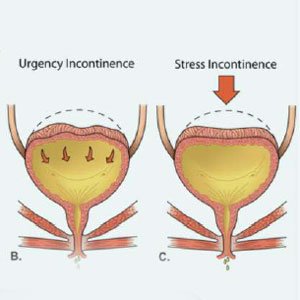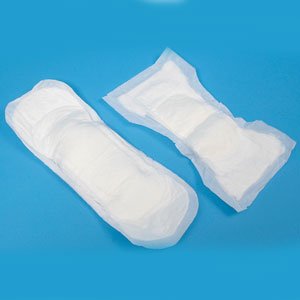Urinary incontinence refers to a condition in which the patient experience loss of bladder control. The severity differs from one person to another. While some experiences leakage while coughing or sneezing others have sudden & frequent urge that is so strong that they do not have the time to reach the bathroom in time
There are many myths around incontinence whihc can be drastically affect an individual's outlook on their incontinence & treatment. The fact is incontinence does not have to stop you from living your life fully & happily.
In this article, Dr. Amit Goel - Laparascopic/Robotic Urologist & Renal Transplant Surgeon, debunks some of the most common myths around incontinence.
Myth: Incontinence is the same in everybody.
Fact: It affects everybody in different way; the problem can range minor to major accordingly. There are two types of incontinence:
Stress incontinence, incontinence which occurs due to pressure on the bladder from coughing, sneezing, or running.


Myth: Incontinence is a normal and inevitable part of old age.
Fact: It is common problem; it has no relation to age. Women of any age can experience this problem; even high school girls exerting pressure on bladders are affected by the situation.
Myth: Only women have this problem.
Fact: Incontinence is most common in women, but it can affetcs men.
Myth: Incontinence is caused by childbirth.
Fact: Childbirth may bring about incontinence; but not all women who give birth develop incontinence. Many factors result in urinary incontinence, such as genetics, lifestyles, or ageing.


Myth: Incontinence is not a health problem.
Fact: Urinary incontinence has a serious effect on health and social life. It can lead to decreased activity, depression, and social withdrawl. Working women who are incontinent face a lot of challenges in their workplace.
Myth: Drinking fewer liquids reduces symptoms of incontinence.
Fact: Avoiding liquids might seem logical to prevent this problem, but it won't. Drinking water or liquids in small doses can help you to stop leakage and reduce odour and irritation.

Myth: Urinary incontinence is common in people with small bladder size..
Fact: Urinary incontinence is not caused by the small size of the bladder. It is not the size of the bladder but rather how nerves and muscles of the bladder release urine over time.

Myth: If you have incontinence absorbent products are must.
Fact: Using absorbent products is not neccessary. Some people feel more comfortable using absorbent products during certain activities. It is your choice if you want to use it or not. Absorbents do not work with you all the time; they may cause skin irritation and rashes in some patients.
Myth: Surgery is the only treatment for incotinence.
Fact: A lot of people hesitate and feel uncomfortable talking about their condition of incotinence because theay are sacred to undergo surgery. Surgery is not the only solution. There are a lot of different treatments you can opt for. Having said that, even the surgery for urinary incontinence is simple & has no complications.
